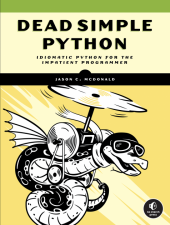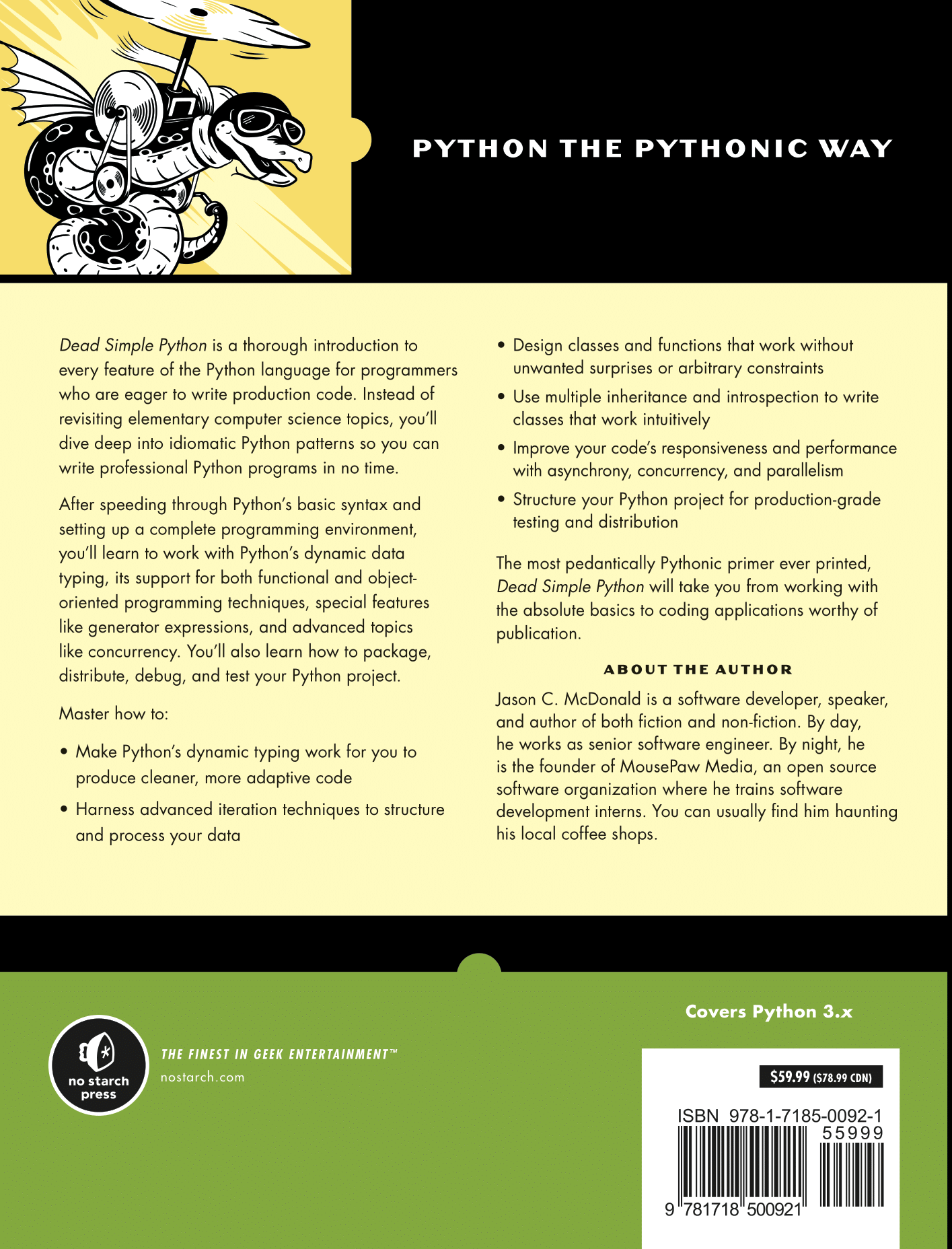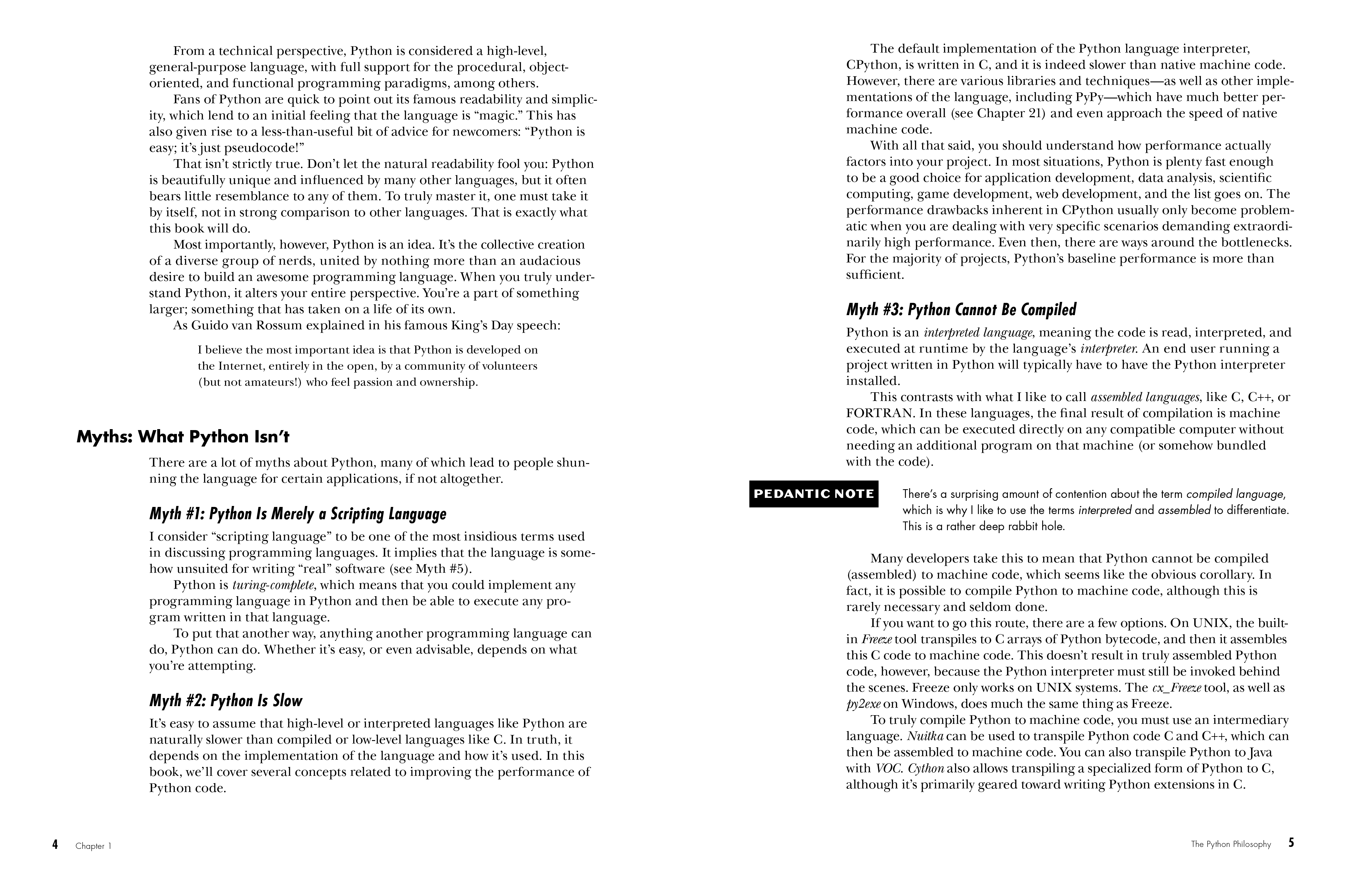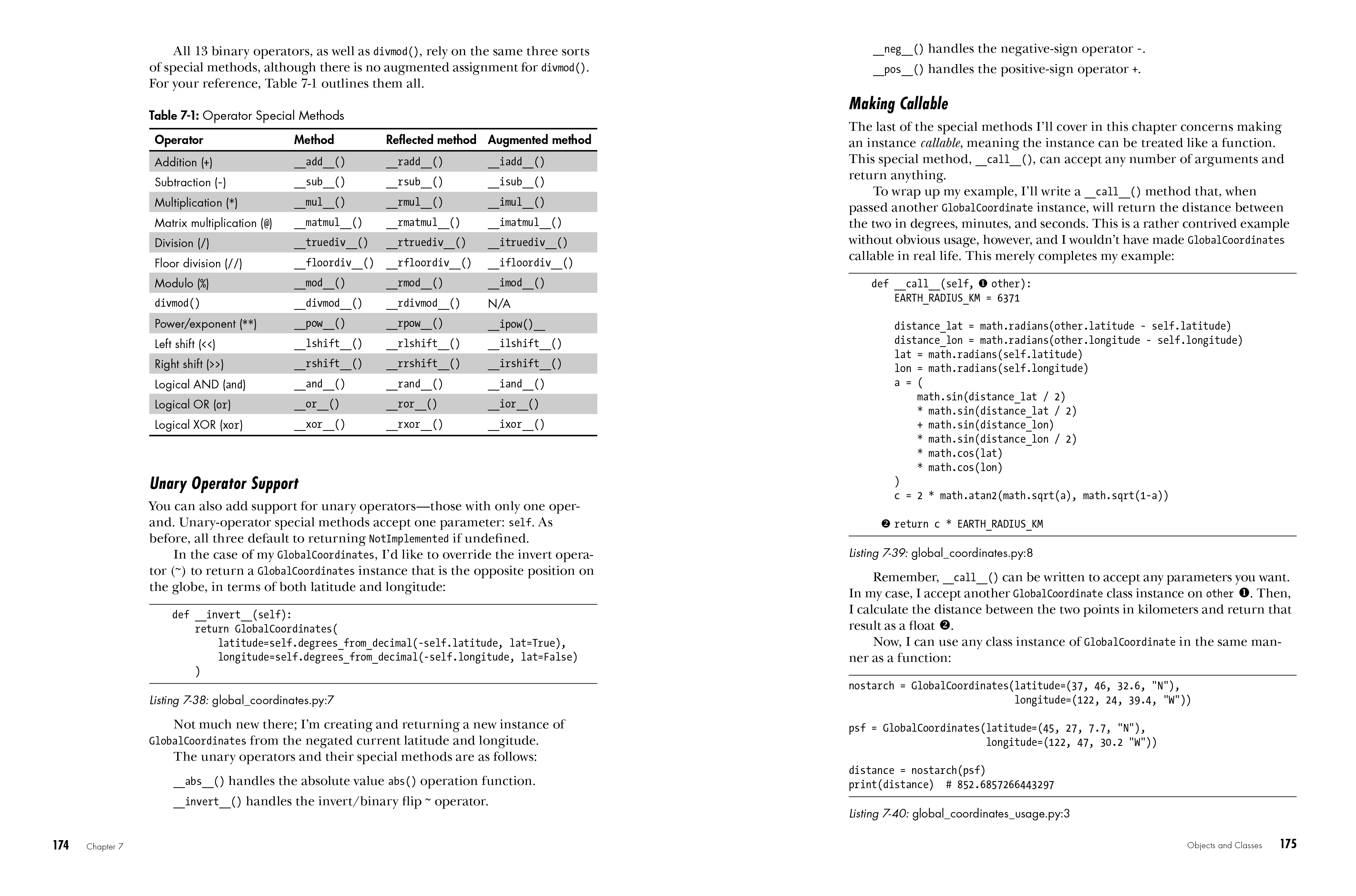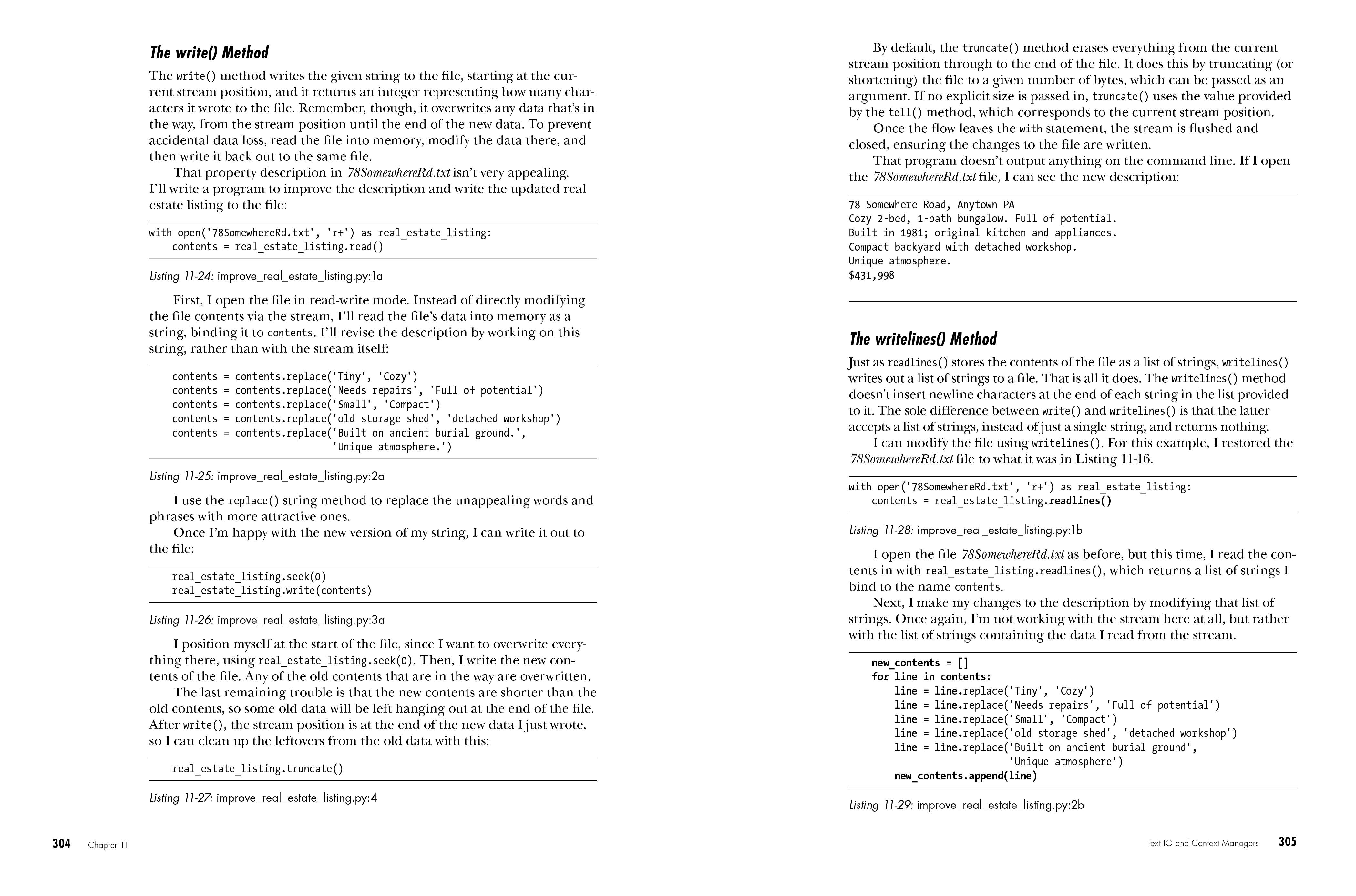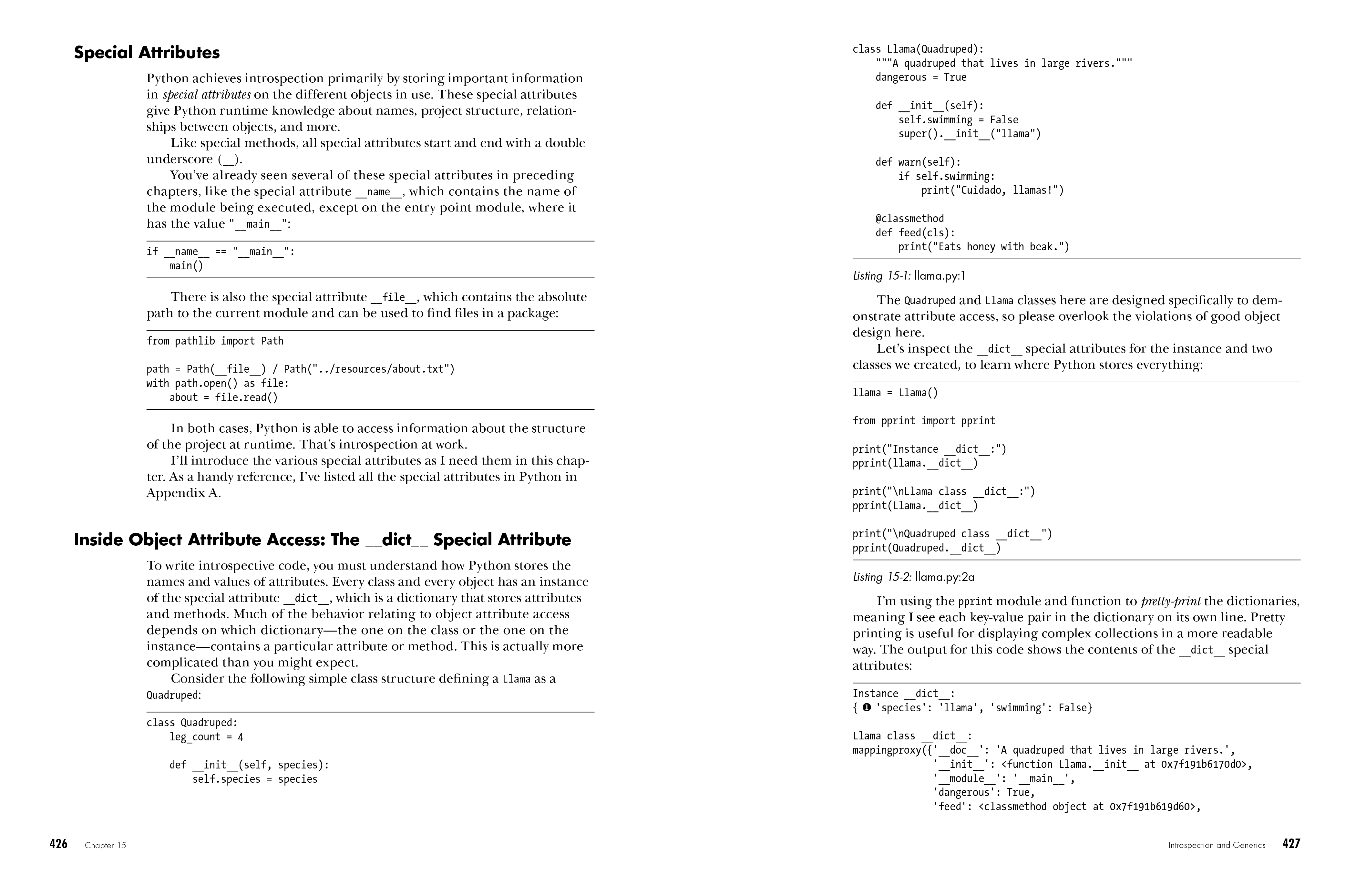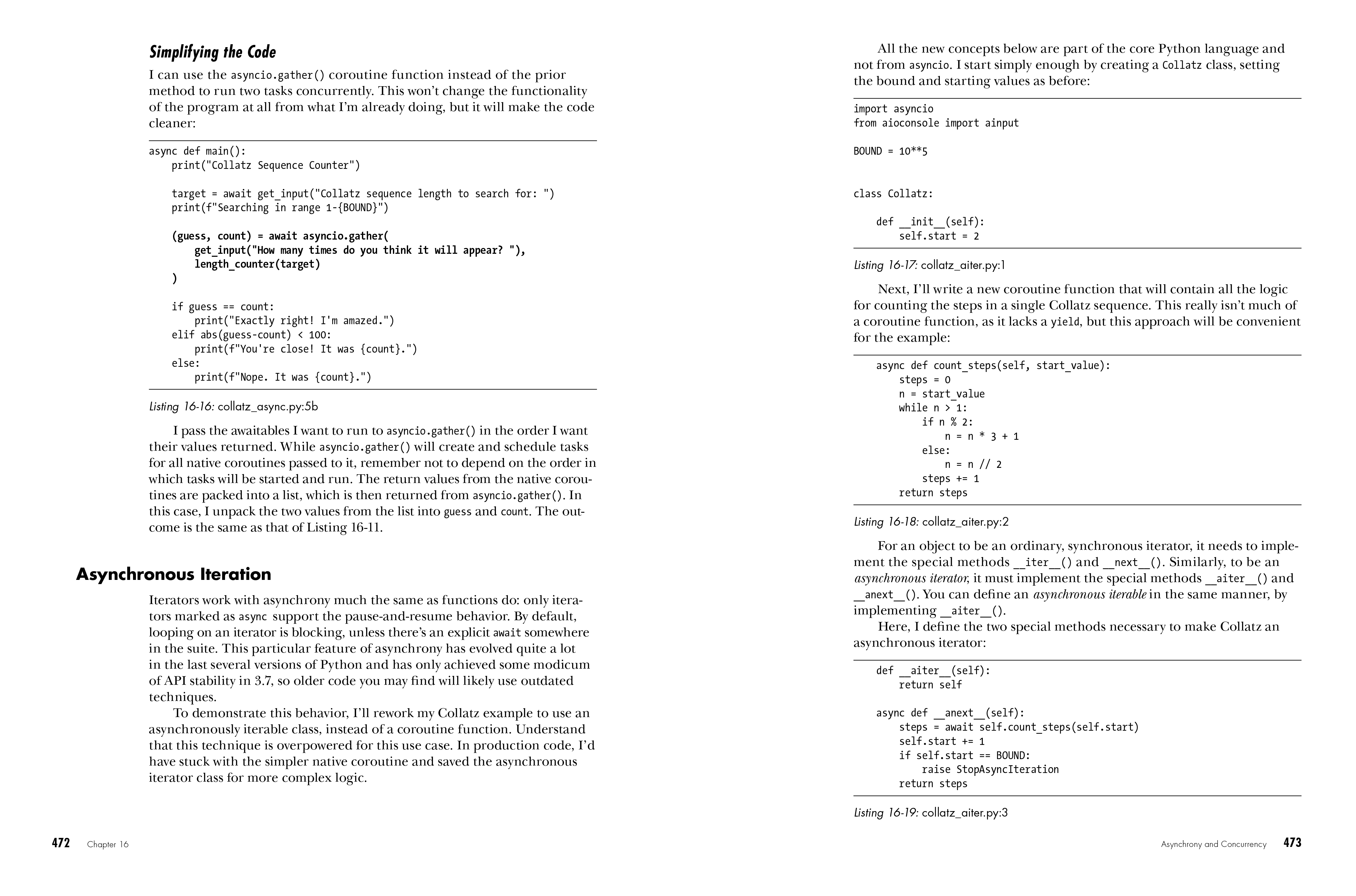Part 1: The Python Environment
Chapter 1: The Python Philosophy
Chapter 2: Your Workbench
Chapter 3: Syntax Crash Course
Chapter 4: Project Structure and Imports
Part 2: Essential Structures
Chapter 5: Variables and Types
Chapter 6: Functions and Lambdas
Chapter 7: Objects and Classes
Chapter 8: Errors and Exceptions
Part 3: Data and Flow
Chapter 9: Collections and Iteration
Chapter 10: Generators and Comprehensions
Chapter 11: Text IO and Context Managers
Chapter 12: Binary and Serialization
Part 4: Advanced Concepts
Chapter 13: Inheritance and Mixins
Chapter 14: Metaclasses and ABCs
Chapter 15: Inspection and Generics
Chapter 16: Asynchrony and Concurrency
Chapter 17: Threading and Parallelism
Part 5: Beyond the Code
Chapter 18: Packaging and Distribution
Chapter 19: Debugging and Analysis
Chapter 20: Testing and Profiling
Chapter 21: The Parting of the Ways
Appendix A: Special Attributes and Methods
Appendix B: Python Debugger (pdb) Commands
Glossary

